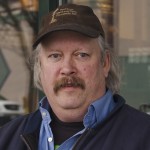Each day, Fred Heutte, lead volunteer for the Sierra Club’s Federal and International Climate Campaign, is providing updates about the day’s events at COP21, the Paris Climate Conference. I will reprint these in this blog with his permission.
SUNDAY, NOV. 29 — The annual UN climate conference got off to an unusual start with a Sunday evening plenary of the ADP (Ad-Hoc Working Group on the Durban Platform), the body preparing the negotiating texts for the Paris Agreement.
The reason for this first-ever session ahead of the official opening of the COP on Monday was so that spinoff groups on key topics could start meeting and not lose a full day of negotiations time because of the special Leaders Event on Monday.
At the ADP plenary, outgoing COP 20 president Manuel Vidal Pulgar (environment minister, Peru) and incoming COP 21 president Laurent Fabius (foreign minister, France) both emphasized the urgency of completing preparation of the ADP’s work by the end of the week so that ministers have a workable text with a limited number of options in week 2.
MONDAY, NOV. 30 — Today was the formal opening of COP 21, with a short COP plenary followed by statements from many of about 150 heads of state and government invited by the French government to give momentum to the difficult two weeks of talks ahead of us.
President Obama emphasized the progress being made in the United States over the last several years, as well as around the world, as setting the stage for a much greater effort to address climate. He noted that many nations have contributed little to climate change but will be the first to feel its effects, and said he would meet with island nations on Tuesday. The latter part of his speech focused on the legacy that this generation must leave for future generations.
Obama touched on two more specific things — the United States is joining with 10 other countries to replenish the Least Developed Countries Fund — the U.S. share will be $51 million out of a total of $248 million. The LDCF mainly supports adaptation planning and program development. This is a continuation of a long-running program (the U.S. funding goes back to the George W. Bush administration).
He also stated the United States has “a new commitment to risk insurance initiatives,” which is a still-developing idea to provide financial support for efforts to recover from extreme events like storms and floods.
With a few evening ADP spinoff groups running but closed to observers, the talk around the halls today was about what issues need to be moved forward this week so that ministers can start to move away from longstanding deadlocks — on climate finance, on five-year cycles of review, on loss and damage (efforts to respond when mitigation and adaptation both fall short and climate impacts cause severe damage to vulnerable countries and areas), on differentiation (fair shares for the climate efforts each country makes and for the financial and technology support that developed countries like the United States should provide to assist developing countries, particularly the most vulnerable).
There were two areas where major initiatives were announced today.
The first is in clean energy, with three side-by-side announcements:
- Mission Innovation, including 20 participating countries pledging to double public clean energy research and development investment over five years (www.mission-innovation.net).
- The Breakthrough Energy Coalition, a coordination effort on a multibillion-dollar clean energy finance push by a global group of major investors including Bill Gates, Mukesh Ambani, Tom Steyer, Masayoshi Son and George Soros. This will also be coordinated with with Mission Innovation (www.breakthroughenergy.com)
- The International Solar Alliance, announced by Prime Minister Modi, will be headquartered in India and already has 120 participating countries and numerous major companies involved in the solar industry.
A second important announcement came from a group of developing countries who have decided to take much quicker action on creating their own clean energy economies. The new Climate Vulnerable Forum (V20), including among others Philippines, Sudan, Ethiopia, Sri Lanka and Bangladesh, Honduras, Bhutan and Vietnam, which are not only calling for a global goal of 1.5 degree C temperature rise (roughly equivalent to 350 ppm), but are pledging to greatly accelerate transition of their own economies from fossil fuel dependence to clean energy, in part with mutual support as well as pushing for more assistance from developed countries.
State of Play Dateline
[x] Sunday 29 ADP pre-plenary
[x] Monday 30 COP opening plenary – Leader Event
[ ] Tuesday 1 COP/CMP joint plenary, SBI and SBSTA opening plenaries, start of ADP contact group and spinoffs
[ ] Wednesday 2
[ ] Thursday 3
[ ] Friday 4
[ ] Saturday 5 closing ADP plenary, COP plenary
[ ] Sunday 6 [COP 21 closed]
[ ] Monday 7 High Level Segment
[ ] Tuesday 8 High Level Segment
[ ] Wednesday 9
[ ] Thursday 10
[ ] Friday 11 closing COP plenary
further info: phred@sunlightdata.com
Note: This list of UNFCCC acronyms could be helpful: http://unfccc.int/essential_background/glossary/items/3666.php

